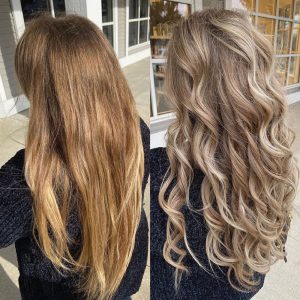
The beauty industry has always been an expressive space. However, in recent years, the beauty industry has become more gender-neutral, looking for ways to become more inclusive and welcoming and ensure that people of all gender identities are able to express their unique style.
Keep reading to learn more about gender neutrality, how it shows up in the beauty industry, and why it is an inclusive workplace.
What is Gender Neutrality?
Gender neutrality is an approach to gender that views gender as an irrelevant social construct. Gender neutrality aims to promote inclusivity by avoiding categorizing based on gender. This approach focuses on eliminating gender norms and making everyone feel welcome, including transgender and nonbinary people. Gender neutrality is becoming more and more popular in the beauty industry, with salon professionals working to show that beauty is for everyone.
Gender Neutrality in the Beauty Industry
More people are starting to recognize that everyone can enjoy beauty treatments. Traditionally, treatments like waxing, facials, and skin treatments have been labeled as feminine. When men have taken advantage of beauty treatments, their masculinity has been questioned, deterring many men from fully enjoying this aspect of self-care. Ultimately, these gendered labels should have no place in a beauty salon.
Gender is irrelevant when it comes to beauty treatments, which is why many salons are embracing a gender-neutral approach to beauty. This makes the beauty industry a great place for careers for people who want to specialize in serving the gender-neutral community and for those who identify as gender-neutral and are looking for a gender-neutral safe career path.
Taking care of your skin, body, and mental health is not a feminine act. Many beauty treatments are a fundamental part of self-care and benefit people of all genders. Salons should be safe spaces for everyone; a gender-neutral approach will help make that a reality.
How to Implement Gender Neutrality in Beauty
Salons are already taking steps to implement gender neutrality in the beauty industry. One example of this is in altering the names of treatments. Sometimes, treatments like haircuts are categorized based on whether a man or woman is receiving it. This is problematic because it excludes people who don’t identify as men or women. Further, categorization based on gender relies on stereotypes, assuming that gender will reveal information about the client to help determine an accurate price for the service. Ultimately, services should be categorized and priced based on the work involved without making assumptions based on gender.
It’s also important to see diverse spokespeople and clients in the beauty industry. From salon displays to beauty influencers, representation matters, and people should be able to visibly see that beauty is for everyone.
Beauty is a Gender-Neutral Industry
Many salons are making strides to become fully gender-neutral. There is a more widespread understanding that gender isn’t a factor when it comes to beauty treatments and that services shouldn’t be categorized based on gender.
The beauty industry is an inclusive place to work. The Salon Professional Academy provides resources and training to help you start your beauty career. If you’re interested in starting our Minnesota cosmetology program, esthetics program, massage therapy program, or nail tech program, contact us today!






